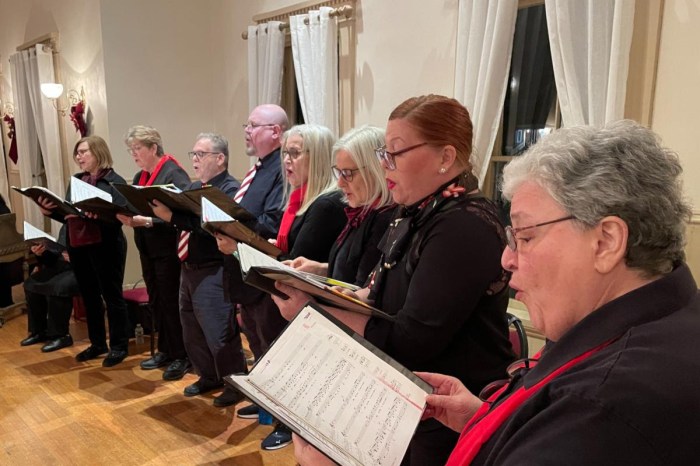By Ronald B. Hellman
Another glorious September has arrived. Tennis balls are being hit with serious intent at the US Open, political mailings are arriving in droves for the primary election next Tuesday, and the local theater season is ready to take off.
But, as I’ve pondered in my last two columns, where will the theater audiences come from? What does it take to fill the seats?
Based on the population alone — Queens has an official count of 2.2 million, and there are millions more in the nearby surrounding counties — it should be a no-brainer. Even with all the theater companies, and Queens has at least 30, it should be real easy to attract a crowd. Just announce the name of your play and its performance dates, and all your tickets will be sold before you know it.
Unfortunately, however, should-be’s and reality are two different things.
Malini Singh McDonald, the leading light of Black Henna Productions, is a woman who knows that you need passion and “guerilla tactics” to bring in the public. When we spoke about this subject last year, she stressed that you have to try everything you can to publicize your show and sell your tickets.
“The demographics are not what they used to be,” she said. The general theater audience is an older segment of the population, and many have moved out or moved on. And, of course, most of those millions within a 30-minute commute to a theater seldom if ever take in a live performance.
Roger Gonzalez, the master of LocalTheatreNY.com and a guy who knows a lot about marketing, agrees that a “media mix” is crucial. His main thrust is building “a strong, targeted e-mail list,” and then blasting out thousands to those waiting computers. In a recent blog post, Roger wrote about a husband-and-wife team who impressed him with their marketing tactics for their play “Shades of War.” They understood, he said, that “marketing is a non-stop effort and the more you put into it, the better the outcome.” Access his site for all the details.
In addition to e-mails, I’ve discussed the value of finding a “hook” — something that is compelling to a particular audience — as well as developing season subscribers and group sales, and discounting the ticket price. What may be most important, in my view, is revealed in a recent quote from film distributor Bob Berney. “There is a stronger market than ever in terms of people who are interested in something unique or different,” he says.
Although Berney was talking about the movies, this is also true for theater. Some of our local groups are making an effort to find material that is out of the ordinary, something seldom if ever seen before, something that will appeal to a younger and more diverse audience. After all, Queens is the home for multi-culture, and nearly 50 percent of its residents are foreign-born. It’s not enough to continue to present old favorites if you want to get people away from their TV sets.
Finally, something that is sorely lacking in our theater community: a coordinated and shared approach that will let our vast potential audience know what’s going on. When I was up at Cape Cod a few weeks ago, I saw a colorful brochure put out by a coalition of some 17 groups that described in detail all the theater events that were available on the Cape from May through October. We have nothing like that here. And although the metro section in the Sunday New York Times and Newsday on Fridays list Long Island theater performances in non-squinting-size type, Queens groups get no coverage in the dailies and are lucky to get a blurb or two in the weeklies. That must change.
Contact Ron Hellman at RBH24@Columbia.edu.



































